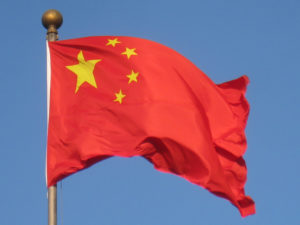One of the most clarifying things about the Covid epidemic has been which countries have been able to handle it and which haven’t.
To oversimplify, China and a few other nations have handled it well. None of the major Western powers have; certainly not the US.
In biology, there’s a distinction between natural selection and sexual selection. In sexual selection, you compete against other members of your species. In natural selection, you compete against your environment.
In nations, societies, and civilizations there is something similar: internal vs. external competition. You compete against fellow members of your society for status, wealth, and power within your society, but your society as a whole competes against other societies. There are always top dogs, hegemonic powers, and so on, and losing an inter-society culture can, at worst, lead to you being genocided and, at best, lead to long periods of poverty and subjugation. (The Irish to the English, say, for hundreds of years. Native Americans to the Europeans. Indeed, almost everyone to the Europeans, but before that there have been various hegemonic powers — including China.)
In the West, with some minor exceptions, Covid was treated as a profit event. It was a way for the richest and most powerful to become even more rich and powerful. That millions would die and millions more would be crippled (Long Covid rates seem somewhere between 10 to 20 percent depending on definitions) was secondary to the possibility of funneling more power and wealth to those who already had the most. Billionaires, just one group among elites, have seen their wealth double during the pandemic.
China, or more accurately, the Chinese Communist Party did not treat the pandemic primarily as being about internal competition. To them it was important that large numbers of citizens did not die and were not disabled.
This means that China will come out of this stronger than the West, because the economy, fundamentally and always, is people, and there’s aren’t mass-disabled and/or dead. Plus the legitimacy of the ruling class, rather than being reduced by their pandemic response, has been increased.
To the CCP, the health of their citizens is integral to maintaining their power. To the West’s elites, it is an asset to be burned down to make more money and improve their internal position.
The irony of this is that by taking care of their citizens, the CCP has both improved their external and internal positions, while the West’s elites, who can be best characterized as incompetent psychopaths capable of nothing but accumulating more internal power and wealth, have been weakened despite their gains in wealth. This is because, as a group, their power is dependent on the health of their population and on their legitimacy.
As far as I can see, Covid pretty much proves that, barring outside shocks, China has already won the hegemonic competition between itself and the US. Oh, it’ll have to play out, but the CCP governs its country basically competently, and US elites are fools who let their society’s power run down.
US military superiority, in the face of nukes and the Russia/China alliance, is insufficient to alter this fact. China has the industry, it has more competent government, and its government’s legitimacy is riding high while the legitimacy of the West is in tatters.
Given these facts, and that China has a much larger population, it’s hard to see how the US can remain in its position. Just as the end of Britain as world ruler took generations after the US actually surpassed it economically, so this will take time to be seen. However, just as, by 1900, it was essentially inevitable that the US would take over from Britain, so it now seems that the hand-off to China is inevitable, or would be in a world without climate change and ecological collapse, those being the likely external shocks that even a functioning society may not be able to overcome.
I take little pleasure in this. I dedicated a decent chunk of my life to trying to help fix the US, as a Canadian-American collapse is likely to be ugly. But it is what it is, and it must be faced squarely.

 The basic truth is that the days of the Pacific being an American lake are coming to a close. China is the 800 pound gorilla. As Yang Jiechi said, “China is a big country and other countries are small countries, and that’s just a fact.”
The basic truth is that the days of the Pacific being an American lake are coming to a close. China is the 800 pound gorilla. As Yang Jiechi said, “China is a big country and other countries are small countries, and that’s just a fact.”